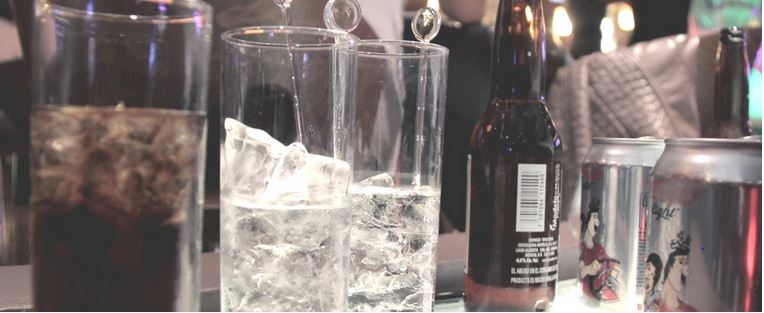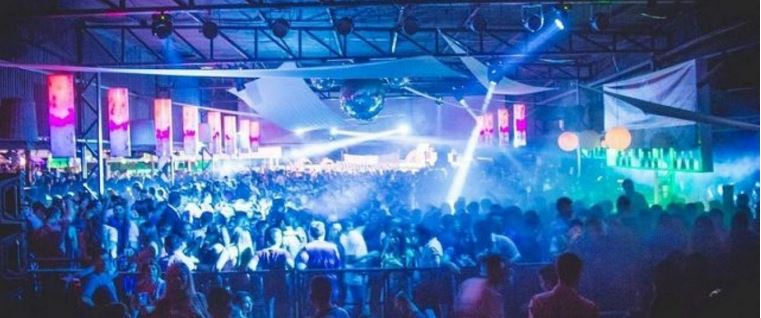Intercambios Argentina – for a constructive approach to drug issues
and Milena Rampoldi, ProMosaik. In the following our interview with the
organisation INTERCAMBIOS located
in Argentina. Intercambios is a pioneer in training on the management of
problems associated with substance use. We talked to Graciela Touzé about the aims,
history, and methods of Intercambios in its struggle against abuse of
substances of all kind, legal, and illegal. The criminalisation is not the
right way to solve the problem. And for women, we need a specific approach.

was Intercambios founded and with what aims?
In 1995 a
group of professionals who were working in an HIV and drug use project made the
decision to continue the work once the project ended. The rates of HIV/AIDS
infection among people who injected cocaine were very high in the main cities
of Argentina. At that time the treatments for problematic drug use were still
not well articulated with the health care services for people living with
HIV. So there was a double problem to work. There were lots of people
living with HIV / AIDS who injected drugs in a very vulnerable situation, being
a doubly stigmatized population for being injecting users and living with HIV /
AIDS, often in situations of social exclusion, with little relation to health
services and social institutions.
Intercambios was born in a
neoliberal period, when the State was moving away and neglecting key public
health spaces. The field experience of the founders of Intercambios showed them
that there was much to be done in HIV prevention for drug users. With that
maverick and laborious spirit Intercambios Civil Association was
born and defined its mission considering the basic precepts of human
rights to shape the construction and application of knowledge about drug use
and drug related problems.
The
institutional objectives were defined as follows:
To favor research development
and studies about drug related problems from a scientific, interdisciplinary
and ethical perspective.
To disseminate rigorous
information about legal and illegal drugs as part of a coordinated effort to
steer public opinion towards a more reflective and responsible vision of drug
use and drug users.
To develop and provide
resources to drug using communities, including professional outreach workers
and peer educators.
To design, advise, implement,
and evaluate prevention plans, programs and community interventions.
To develop a network of
social services and resources that will provide access to comprehensive care
for people who are affected by drug related problems.
To promote the permanent
exchange, collaboration and cooperation between institutions, investigators and
other social actors, in order to achieve the integration of networks and
working teams.
Since its foundation, Intercambios has
reached the following achievements:
Became a key organization for
harm reduction, drug policy and human rights, based on scientific evidence,
both nationally and throughout Latin America.
Developed studies that
provided relevant epidemiological information for the country, in collaboration
with other institutions and academics centers.
Focused on policies and
intervention for the drugs users, in order to improve their accessibility to
social and health care services.
Intervened in health
programs, working directly with drug users. Intercambios has supported
interventions of governmental and non-governmental organizations through
training processes and technical transference.
Generated and organized
forums about drug policy that now reach across Latin America, which gather the
most renowned experts along with governmental officials, lawmakers, and
activists.
Trained in service students,
graduated professionals and community activists in Argentina and abroad.
Provided virtual training courses throughout Latin America.

What
are the main risk factors in Argentinian society, that can bring to drug abuse?
As
elsewhere in the world, substance use is available and stimulated by social
interaction and by marketing campaigns, particularly in the case of the legal
substances such as alcohol, tobacco or prescription medicines. People who use
drugs in Argentina and in many other countries have different purposes for
using substances, but only few of those who use them will have a problematic
drug use that could harm their social integration. Nevertheless, many of the
people who use drugs and particularly those who use illegal drugs are heavily
criminalized, generating more problems than those it intended to solve.
The criminal response has affected mainly low-level traffickers and drug users.
At the same time, it has complicated—and sometimes stopped—the development of
other, more effective and less harmful, non-criminal responses.
Why
are drug-related issues connected to human rights?
Scientific
evidence has profusely shown the harmful consequences that the “war on drugs”
had globally. Many Latin American officials and activists working to reduce HIV
infection, increase of incarceration rates, stigma and discrimination of people
who use drugs have found linkages with the human rights groups and movements
working in the Region. These interactions have helped the human rights groups
to broaden their views of human rights historically linked with political
repression, and gave the people working with the harm reduction approach a well
defined framework to discuss the rights of drug users.
How
do you address specific action for women?
Women who
have drugs related problems particularly suffer the violation of their rights.
At least three situations are to be considered: women who have a problematic
drug use, women imprisoned for drug related offenses and women that are part of
sexual exploitation or drug traffic networks. Since Intercambios was founded
our work had a gender focus. Intercambios has produced investigations,
interventions, trainings and advocacy in these issues and communicated them at
national, regional and international forums. One of our latest intervention programs
is named “Let’s talk about drugs”. It is dedicated to prevention of substance
use and promotion of youth participation in vulnerable environments. It is
located in La Matanza Municipality in the Province of Buenos Aires, Argentina. A
Listening Center is organized twice a week, as an open space for adolescents
and adults that need to talk, to be heard, to receive counselling and
assistance linked to drug related problems. Individual and group
interventions are developed. The team defines this Centre as a space that
is characterized by “being available… to make something
happen”. Gender violence, sexual and reproductive health andinformation
about healthy diet were particularly addressed with young girls that
participate of the program.
Do
you cooperate with local authorities and institutions? If yes, how?
We have
been working since our foundation with the Directory of AIDS and STI of
the Ministry of Health, the local agency dedicated to drug issues and human
rights departments at the national, provincial and municipal levels. We have
organized and developed trainings, preventive interventions, research
activities and advocacy initiatives with many governmental officials in
Argentina and in other Latin American countries. Globally, Intercambios is a member
of the International Drug Policy Consortium, is registered as a civil society
organization at the Organization of American States since December 2009, and
was awarded special consultative status by ECOSOC on July 2012.


